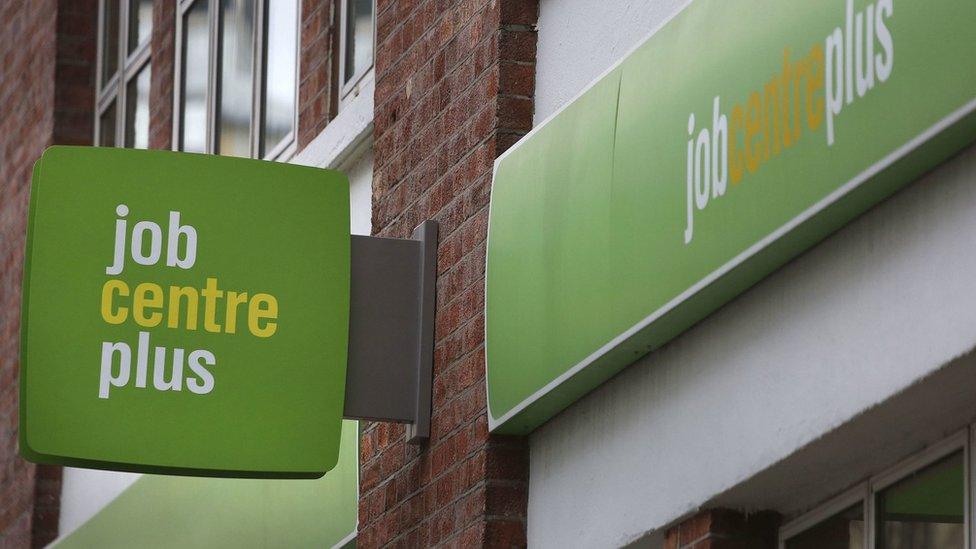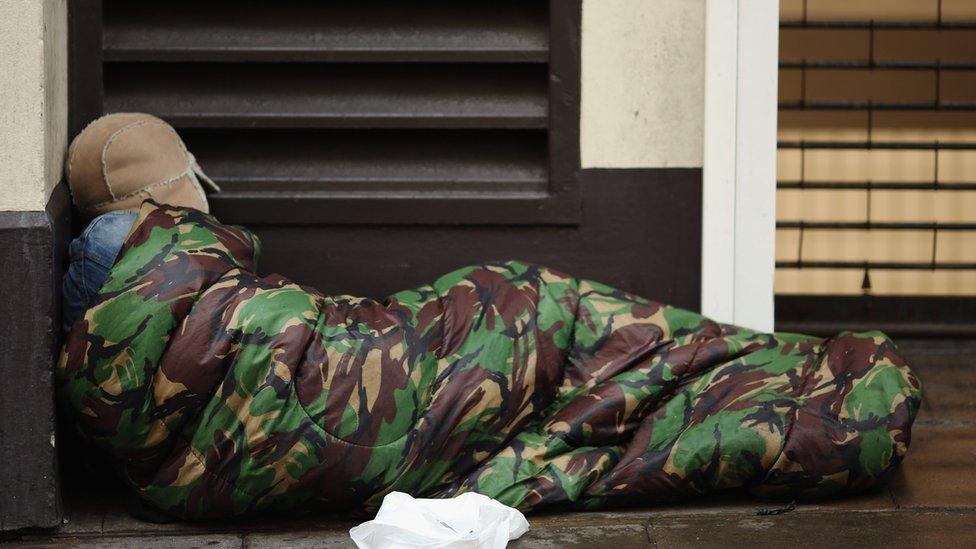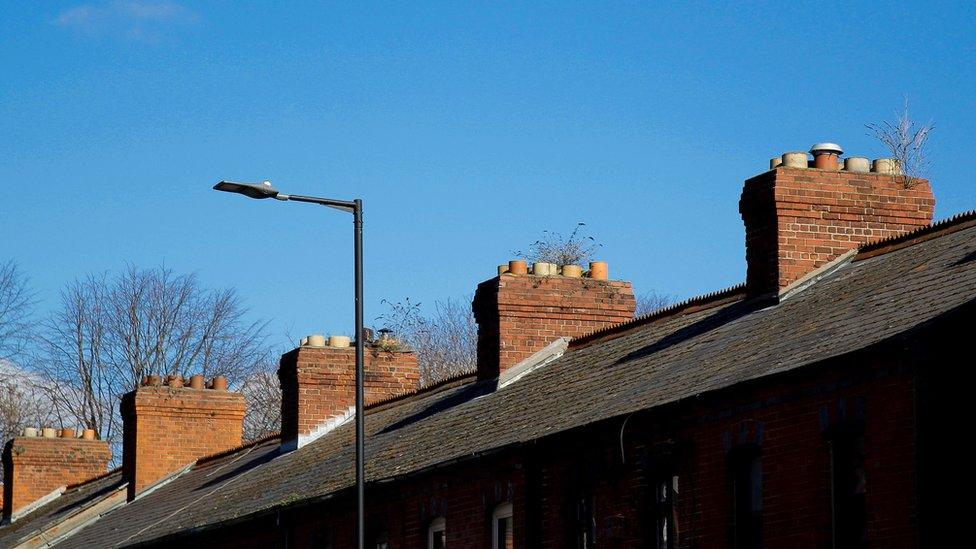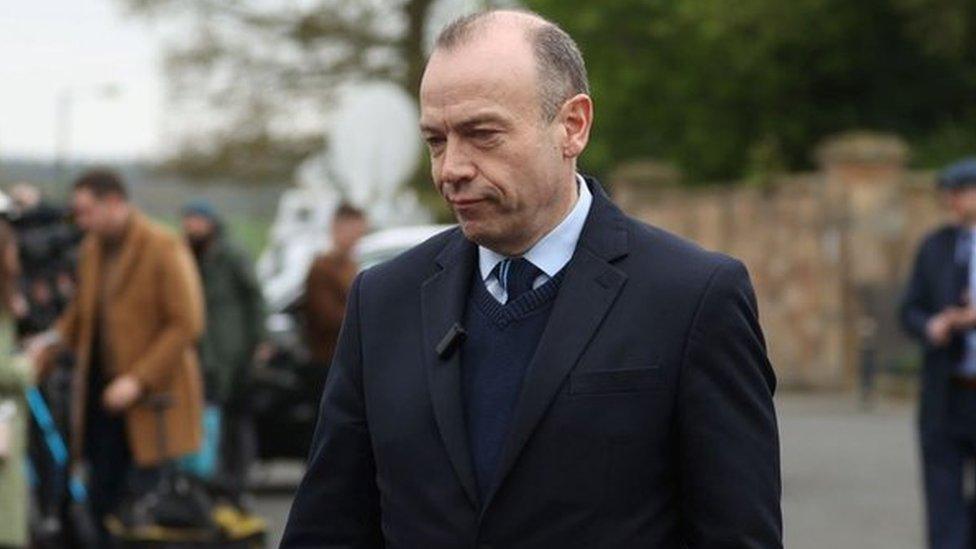Department of Communities: Hundreds of jobs will not be filled
- Published
- comments

Front line staff vacancies account for 75% of those cut
More than 600 vacancies at the Department for Communities (DfC) - including those for front line staff - will not be filled, it has been confirmed.
The decision means there is a risk of slowing down the delivery of benefits for those in need.
The DfC is responsible for benefits, housing, addressing homelessness, arts and culture and sport.
Frontline staff vacancies account for 75% of those cut.
The department said the cuts would be made in order to live within an "inadequate" budget.
Arm's length bodies of the DfC and third-party organisations funded by the department will receive a 5% cut to their budgets.
These include the Arts Council, Libraries NI and the Northern Ireland Housing Executive among others.
Councils will receive a £4m cut to the Rates Support Grant compared to the previous year, which will affect seven of Northern Ireland's 11 councils.
The department has also decided to leave four offices in the greater Belfast area.
None of the offices are public facing, meaning services will not be impacted.
'Sub-optimal budget'
The DfC is the largest department in the Northern Ireland Civil Service with more than 9,000 staff.
It is facing an unprecedented 15.5%, or £111.2m, shortfall as a result of the Stormont budget, published by the Northern Ireland secretary in the absence of an executive.
In taking these decisions, the department said it would be £10m over budget, understood to be a calculated risk which is expected to be managed throughout the year.
Confirming the funding decisions, DfC permanent secretary Colum Boyle said the department had "sought to mitigate the significant and adverse impact" of the budget, which he described as "sub-optimal".
"Our shared priority remains supporting the most vulnerable and at-risk in our society," he said.
"However, difficult decisions had to be made to live within the funding available."

Funding for homelessness is set to be increased by £2m
The Supporting People programme which helps people live independently in the community has had funding sustained at the same as last year's level.
Discretionary support, which provides emergency financial support for people in crisis situation, will receive £20m funding.
Last year, £40m of discretionary support grants were handed out after significant demand due to the cost of living crisis.
Funding for homelessness is to be increased by £2m (or 8%) compared to last year.
The Affordable Warmth Scheme and Neighbourhood Renewal programmes have also been protected.
In terms of the capital budget, the DfC is facing a £59m (27%) shortfall compared to what was asked for, against a backdrop of record inflation in areas such as construction.
This mean's the budget will not be able to meet the department's target to start 2,000 new social homes this year and is now only expected to achieve 1,470 new starts.
Related topics
- Published9 May 2023

- Published27 April 2023
